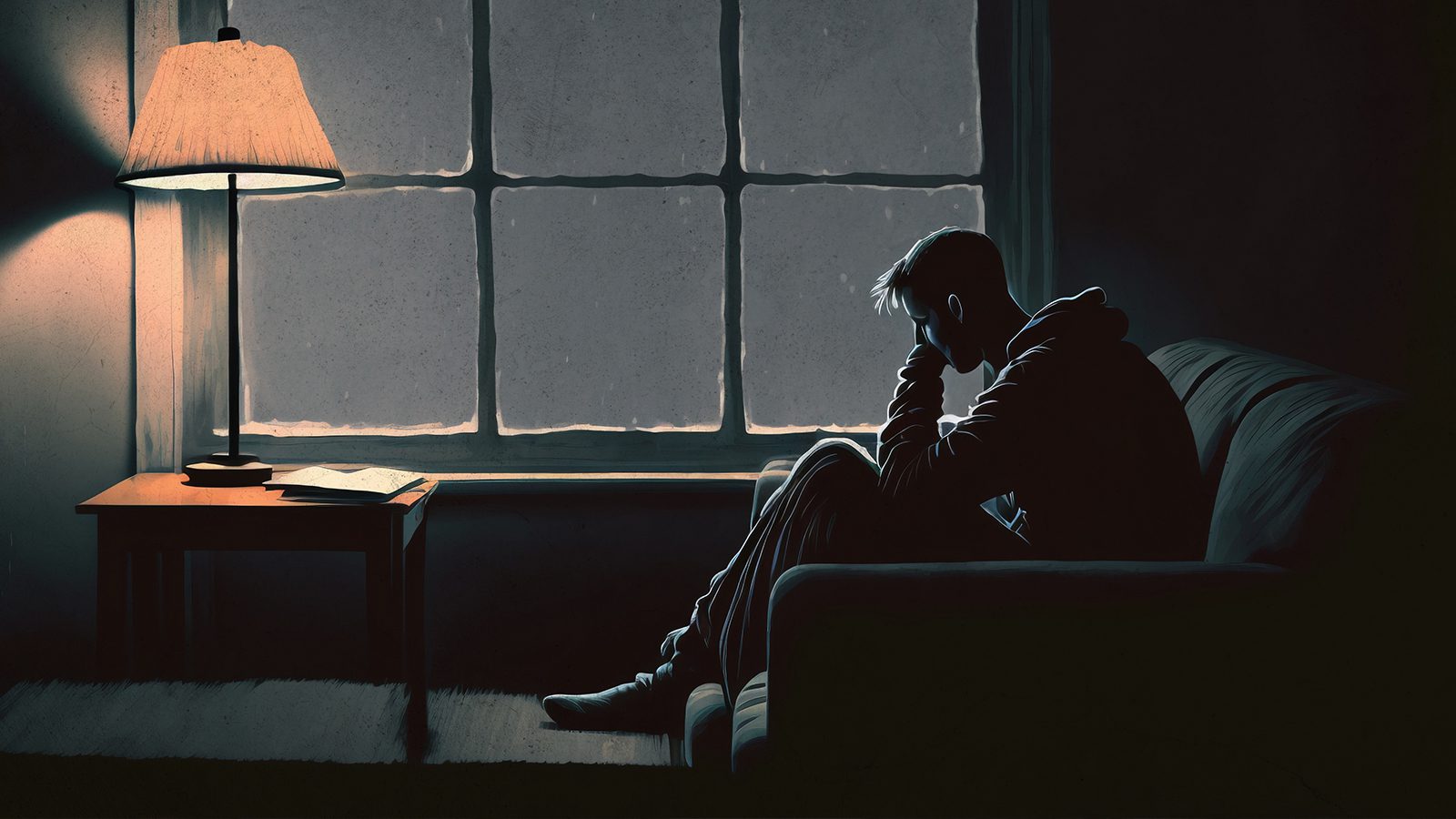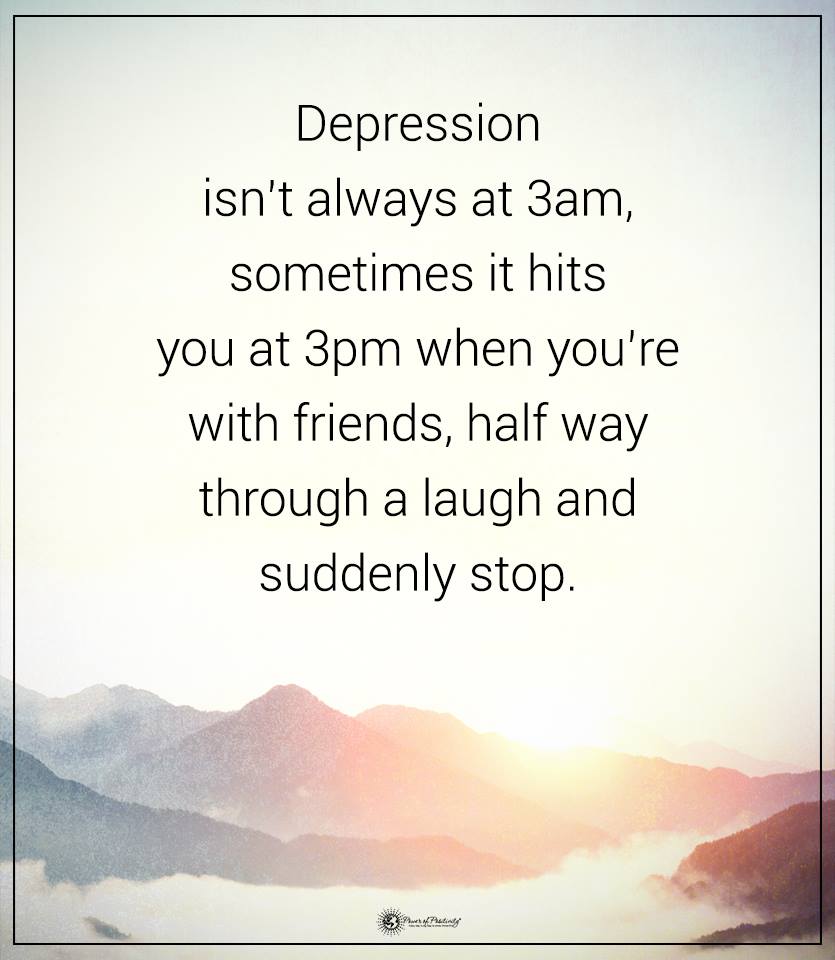In the depths of our emotional well-being, there are times when the weight of the world seems unbearable. Sometimes a cloud of darkness lingers, and joy feels out of reach. If you’ve ever found yourself uttering the words, “I am depressed,” it’s essential to recognize that you are not alone. Depression affects countless individuals worldwide, cutting across age, gender, and background.
Understanding depression goes beyond merely labeling a fleeting bout of sadness. It encompasses a complex interplay of emotional, cognitive, and physical symptoms that can significantly impact daily life. This article provides a comprehensive overview of depression and delves into the significance of understanding its signs.
Acknowledging and understanding the signs of depression is crucial for early intervention and effective treatment. By becoming familiar with the symptoms of depression, you can better identify if you are experiencing depression and take appropriate action. The following sections will help you move from “I am depressed” to “I am fighting depression and bettering myself.”
I Am Depressed: Know These Symptoms
The following sections describe the symptoms of depression and can offer you valuable insights into your emotional well-being. If “I am depressed” is the conclusion that pops your mind while reading these, reach out to a professional. Seeking help is always the best way to manage health concerns and get the proper diagnosis.
1. Persistent Sadness or Emptiness May Say, “I Am Depressed”
One of the primary symptoms associated with depression is persistent sadness or an overwhelming sense of emptiness. While it is normal to experience occasional bouts of sadness, depression involves a chronic low mood that lingers for an extended period. Often the empty feeling lasts for weeks, months, or even years. This persistent sadness can seep into all aspects of life, making it challenging to find joy or pleasure.
Recognizing the difference between temporary sadness, a natural response to life’s challenges, and chronic low mood is essential. Temporary sadness tends to be a passing emotion triggered by specific events or circumstances and gradually subsides with time. In contrast, the deep-rooted sadness associated with depression persists, often without an identifiable cause or reason. Chronic sadness will make you think, “I am depressed” at least once.
2. Loss of Interest or Pleasure
Depression also involves a loss of interest or pleasure in once enjoyable activities. This symptom, known as anhedonia, can profoundly impact one’s quality of life and overall well-being. Losing interest in previously enjoyable activities may indicate a possible sign of depression.
Once pleasurable activities may now feel devoid of enjoyment or meaning. This loss of interest can extend to various domains of life, including work, relationships, and self-care. For instance, you may be no longer enthusiastic about engaging in your favorite hobbies.
Or you may be disconnected during social gatherings that were previously enjoyable. Tasks that used to be engaging and fulfilling may now seem burdensome and devoid of purpose. This pervasive sense of disinterest can contribute to a sense of detachment from life and exacerbate feelings of sadness and emptiness.
3. Changes in Appetite or Weight
It is ypical for appetite and weight to fluctuate within a reasonable range. And such symptoms should not make you think, “I am depressed.” But a persistent and noticeable shift may be a cause for concern. Depression can affect individuals differently when it comes to appetite.
Some people may experience decreased appetite, leading to weight loss and a general lack of interest in food. On the other hand, others may have an increased appetite, causing weight gain and a tendency to overeat. Often, comfort in food is sought as a coping mechanism. Therefore, it is essential to distinguish between normal fluctuations in appetite and weight and those associated with depression.
Normal fluctuations may occur in response to changes in physical activity, seasonal variations, or temporary stressors. However, in the context of depression, these changes are persistent and unrelated to such external factors. As a result, they can be more severe and significantly impact one’s physical health and self-image.
4. Sleep Disturbances Could Reveal “I Am Depressed”
Depression can disrupt the delicate balance of sleep, leading to various sleep issues that can significantly impact one’s overall well-being. Depression can cause insomnia, making it difficult for some individuals to fall or stay asleep at night. In addition, racing thoughts, worry, or an overwhelming sense of sadness can contribute to heightened alertness, preventing rest.
On the other hand, depression can also result in hypersomnia, characterized by excessive sleepiness and an increased need for sleep. Those experiencing hypersomnia may find staying awake during the day challenging, feeling exhausted despite getting enough sleep.
The connection between depression and sleep disturbances is complex. Sleep problems can exacerbate depressive symptoms, leading to a vicious cycle. Lack of quality sleep contributes to worsened mood, and in turn, declined mood further disrupts sleep patterns. This interplay highlights the importance of addressing sleep disturbances and depression to improve well-being.
5. Fatigue or Loss of Energy
Fatigue, or a persistent loss of energy, is a common symptom experienced by individuals with depression. It goes beyond the typical tiredness that can be remedied with rest. Depression-related fatigue can manifest in various ways. Simple tasks like getting out of bed, working, or engaging in basic self-care can feel overwhelming.
This constant exhaustion can significantly impact your productivity, relationships, and overall quality of life. Fatigue and low energy can perpetuate a cycle of inactivity, isolation, and worsening mood. In addition, fatigue can make it challenging to seek help or engage in self-care practices essential for managing depression effectively.
6. Feelings of Worthlessness or Guilt
In depression, feelings of worthlessness may arise as a distorted self-perception. Individuals may believe they are inherently flawed, inadequate, or unworthy of love and happiness. Excessive guilt often accompanies these feelings, leading individuals to blame themselves for perceived shortcomings or events beyond their control.
This self-imposed guilt can intensify the emotional burden of depression, fueling a vicious cycle of negative self-talk and reinforcing negative beliefs. The impact of these feelings is far-reaching, affecting self-esteem, relationships, and overall mental well-being. In addition, negative self-talk can further exacerbate depressive symptoms, contributing to a self-perpetuating cycle of negativity.
Such negativity can even come in the form of thoughts such as “I am depressed.” This is often seen as something to be ashamed of and can further worsen your self-perception. Challenging these thoughts and working towards cultivating self-compassion and self-acceptance is vital in the journey of overcoming depression.
7. Difficulty Concentrating or Making Decisions
Depression affects not only emotions but also cognitive processes. Individuals may find it hard to focus, experiencing persistent mental cloudiness. This makes it difficult to concentrate on the tasks at hand.
They may also struggle with making decisions, feeling overwhelmed by simple choices. This cognitive impairment can hinder productivity, decrease work or school performance, and strain interpersonal relationships.
The impact of cognitive difficulties extends beyond the immediate frustration they cause. The inability to concentrate or make decisions can lead to a sense of inadequacy and contribute to feelings of worthlessness or guilt. It can also lead to decreased engagement in activities and a sense of inability to keep up with daily responsibilities.
8. Physical Symptoms That Suggest “I Am Depressed”
Depression is not limited to affecting only one’s emotional well-being. It can also manifest in physical symptoms that are often overlooked. The mind and body are connected intricately, and it is well-documented that mental health significantly influences physical well-being.
When experiencing depression, the body’s stress response system can become dysregulated, leading to various physical symptoms. For instance, chronic headaches or migraines can result from heightened tension and stress. In addition, alterations in the gut-brain axis can influence digestive issues, such as stomach pain, bloating, or changes in appetite.
Recognizing the connection between mental and physical health is crucial. Addressing both aspects is essential for comprehensive well-being and effective management of depression. Neglecting the physical symptoms associated with depression can prolong the healing process and impact the individual’s quality of life.
9. Thoughts of Death or Suicide
Depression can distort one’s perception of reality and intensify feelings of hopelessness, despair, and emotional pain. In some cases, individuals may find themselves contemplating thoughts of death or even considering suicide to escape their suffering. These thoughts should never be ignored or dismissed.
If you or someone you know is experiencing thoughts of death or suicide, seek immediate help. Various resources are available, including suicide hotlines staffed by trained professionals who can provide support and assistance. It is essential to understand that suicidal thoughts are not a character flaw or a sign of weakness. Instead, they indicate the immense pain and turmoil that depression can inflict.
By reaching out for help, individuals can receive the necessary support, interventions, and treatment. If you or a loved one is experiencing a suicidal crisis, don’t hesitate to contact emergency services (dial 988 in the United States) or go directly to the nearest emergency room. Remember, help is available. You don’t have to face these thoughts alone.
Final Thoughts on Recognizing “I Am Depressed” and When to Seek Help for Depression Symptoms
Recognizing the signs of depression is crucial for understanding your emotional well-being and taking appropriate action. Throughout this article, we have explored nine key symptoms of depression that should never be ignored.
These range from sadness and loss of motivation to physical changes, struggles, and suicidal thoughts. If you relate to any of these signs and find yourself saying, “I am depressed,” it is essential to seek professional help. Consulting a mental health professional can provide you with a proper diagnosis.
You can also get support and a personalized treatment plan to address your symptoms effectively. Remember, recognizing and acknowledging your emotional state is a courageous first step. Depression is a treatable condition; with the proper support, you can regain your well-being and find hope for the future.



















